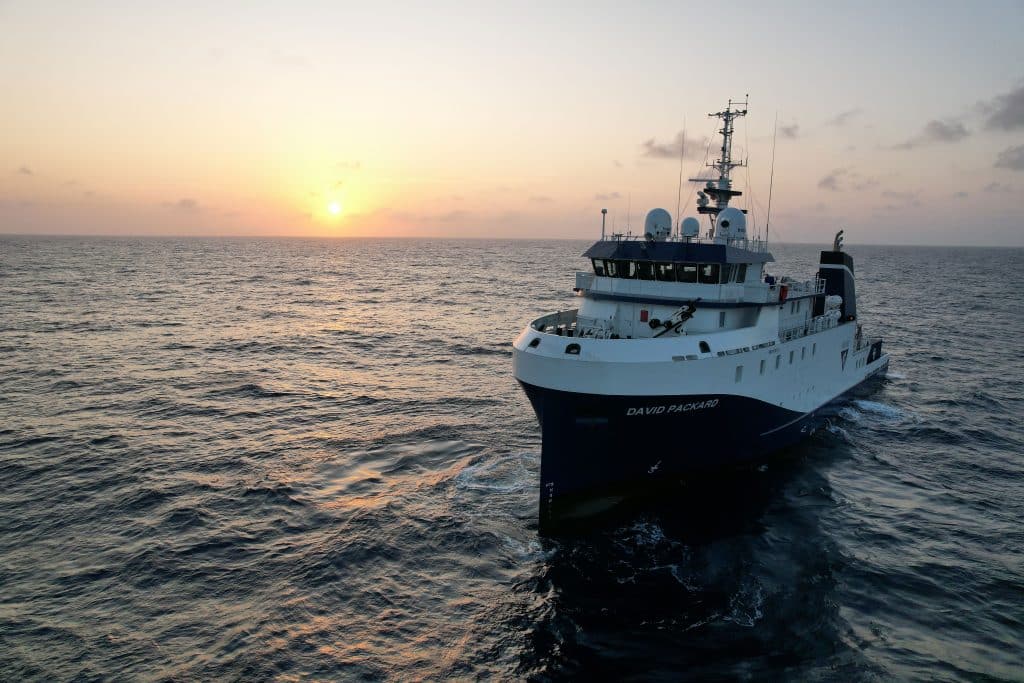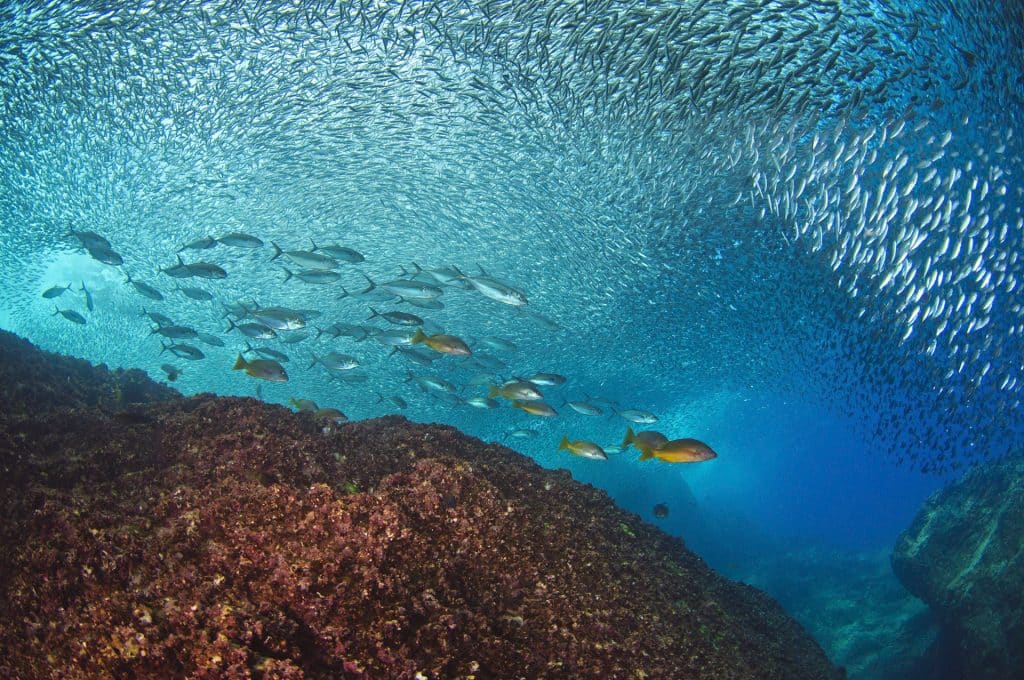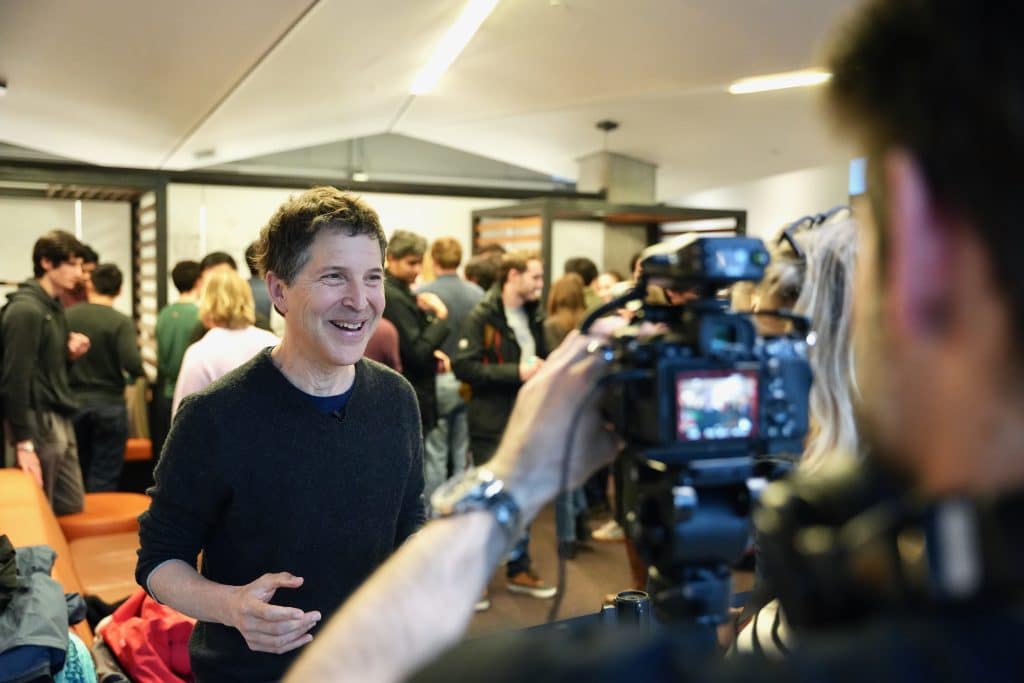Over the next two weeks, world leaders are meeting in Glasgow, Scotland for the 26th annual UN Climate Conference (COP26). Against a backdrop of intensifying climate impacts — such as stronger and increasingly-common hurricanes and wildfires, rising sea levels, and melting glaciers — COP26 is a make-or-break moment for climate action after the UN’s Intergovernmental Panel on Climate Change described the climate situation as an urgent “code red for humanity.”
And yet, there is still hope. And an intensifying need to work collectively to stabilize our climate for a more equitable, sustainable future. The moment is now — for governments to come together to commit to and act on reducing greenhouse gas emissions, and for philanthropy to play a catalyzing role to spur action.
As COP26 is underway, and people from governments, companies, civil society, and philanthropy come together to take collective action, here’s what we’re focused on:
A Major Pledge to Reduce Methane Emissions
Methane is a dangerous super pollutant because it is more than 80 times more powerful than carbon dioxide. Slashing methane emissions is the fastest and most cost-effective way to keep the planet’s temperature rise to under 1.5℃, one of the goals of COP26, while also improving public health and food production. On November 2, President Biden announced that more than 100 countries have signed onto the Global Methane Pledge, which includes a commitment to reduce methane emissions by at least 30% by 2030 and limit warming to 0.2℃ by 2050.
Rapid methane reductions now will bring many significant social and health benefits, including reduced asthma-related deaths and other negative outcomes that are associated with the harmful effects of climate change. These positive outcomes are especially important to minority and low-income communities, which are especially vulnerable to the effects of climate change. To ensure a just and equitable energy transition, more than 20 philanthropic organizations from across the globe — including the Packard Foundation — have committed $328 million to support countries’ abilities to meet the pledge.
Indigenous Peoples and Local Communities Rights-Based Climate Action
Indigenous Peoples and local communities are proven forest guardians, protecting the diverse tropical forests that are vital to safeguarding the planet from climate change, biodiversity loss, and pandemic risk. Half of the world’s land is community land governed by Indigenous Peoples and local communities, and by some estimates, 80 percent of the world’s biodiversity is found on these lands. The need is urgent to advance tenure rights for Indigenous Peoples and local communities and scale up protections for these precious ecosystems.
During the World Leaders Summit at COP26, a joint set of commitments was announced to advance support for Indigenous Peoples’ and local communities’ tenure rights and their forest guardianship. The Packard Foundation joined with governmental and philanthropic funding partners to commit a collective $1.7 billion of financing from 2021-2025 to support the advancement of these rights.
A coalition of Indigenous and local communities, the Global Alliance of Territorial Communities, is actively engaging at COP26. If you’d like to stay up to date on the latest actions at the Summit, their Twitter account is a great one to follow.
Ocean-Climate Action
In a recent column in The Chronicle of Philanthropy, Julie Packard, executive director of the Monterey Bay Aquarium and vice chair of the Packard Foundation Board of Trustees, highlighted that COP26, “is an opportunity both to recognize the role the ocean must play in mitigating climate change and to direct significant philanthropic funding to this endeavor.” The most durable, effective, and equitable conservation outcomes that can help meet the climate challenge arise from actions led by Indigenous Peoples and local communities. As an example, she points to the Packard Foundation’s support for “the Northern Chumash Tribal Council’s leadership role in the nomination of the Chumash Heritage National Marine Sanctuary along California’s central coast” and ICCA’s Global Community Fisheries Initiative.
There are growing calls for the ocean to be integrated into this year’s COP26 climate negotiations, as it has greatly slowed the rate of climate change. According to the High Level Panel for a Sustainable Ocean Economy, the ocean has the potential to reduce emissions equivalent to pollution from all coal-fired power plants world-wide. The COP26 Virtual Ocean Pavilion offers an opportunity for people from around the world to join live events, engage with experts, and learn more about ocean-climate action.
A Spotlight on Grassroots Actors
Although climate change impacts all of us, Indigenous Peoples and local communities are among the first and most severely affected. At the same time, they are leading the way in creating solutions using traditional knowledge and novel approaches. Efforts to confront climate change are incomplete without their inclusion.
“If Not Us Then Who?” is an organization that highlights the role Indigenous Peoples and local communities play in protecting our planet. As part of Our Village COP26, “If Not Us Then Who?” is running a series of virtual and in-person events that will explore questions at the intersection of climate change, Indigenous Peoples, and the effects of the global crisis.
For another perspective on COP26, check out climate activist Katherine Egland who is in Glasgow sharing her observations and opinions on Twitter. Katherine is a co-founder of EEECHO, a coalition based in Gulfport, Mississippi, working to safeguard frontline communities from public health and climate impacts of the wood pellet industry.
Climate and Forest Finance Resources
COP26 also aims to mobilize the financial support necessary to accelerate large-scale climate action this decade to keep global temperatures from rising more than 1.5℃. To help meet this goal, the Climate and Land Use Alliance launched Climate & Forests 2030, a set of resources for funders aimed at mobilizing finance at scale to realize the power of forests to address climate change, benefit people, and protect nature.
To help achieve the goal of stopping deforestation by 2030, the Packard Foundation is also providing additional funding to the Climate and Land Use Alliance for Amazon Forest conservation, ensuring the integrity of Carbon Markets and supporting Indigenous Peoples and local communities’ territorial rights.
All Hands on Deck
The climate crisis is at an “all hands on deck” moment — the world needs to respond to this “code red” decisively and collectively by catalyzing climate action for a more equitable, sustainable future. These organizations, and countless others working tirelessly to save our climate, give us hope that our global community can meet the urgency of this moment.







